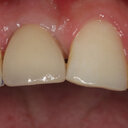The protective effect of caffeic acid on global cerebral ischemia-reperfusion injury in rats.
キーワード
概要
Ischemic stroke is a major cause of death and disability all over the world. Ischemic stroke results from a temporary or permanent reduction of cerebral blood flow that leads to functional and structural damage in different brain regions. Despite decades of intense research, the beneficial treatment of stroke remains limited. In light of this, the search for effective means ameliorating cerebral ischemia-reperfusion injury (CIRI) is one of the major problems of experimental medicine and biology. Recently, the 5-Lipoxygenase (5-LO, a key enzyme metabolizing arachidonic acid to produce leukotrienes) inhibitors have been showed to protect brain against ischemic damage in animal model of cerebral ischemia. Caffeic acid, an inhibitor of 5-LO, is a phenolic compound widely distributed in medicinal plants. The aim of this study was to investigate the effect of caffeic acid on global cerebral ischemia-reperfusion injury in rats. The study was carried out on 45 rats that were randomly divided into five groups: the sham group (n = 9), I/R non-treated group (n = 9), I/R-caffeic acid group (10 mg · kg(-1)) (n = 9), I/R-caffeic acid group (30 mg · kg(-1)) (n = 9) and I/R-caffeic acid group (50 mg · kg(-1)) (n = 9). Global cerebral ischemia was induced by bilateral carotid artery occlusion for 20 min followed by reperfusion. Spatial learning and memory was evaluated using Morris water maze. Histopathological changes of hippocampus neurons was observed using HE staining. Superoxide dismutase (SOD, the antioxidant enzyme) activities and malondialdehyde (MDA, an oxidative stress biomarker) contents were detected. NF-κBp65 expression was detected by the methods of immunohistochemistry. Caffeic acid markedly reduced the escape latency, relieved hippocampal neurons injury and increased neuron count compared with those of I/R non-treated rat. NF-κBp65 expression and MDA content decreased significantly, and SOD activities increased significantly in hippocampus. Compared with sham group, 5-LO expression increase significantly in I/R non-treated group rat, and caffeic acid markedly reduced 5-LO expression. The results of the study suggest that caffeic acid has a significant protective effect on global cerebral ischemia-reperfusion injury in rats. The neuroprotective effects is likely to be mediated through the inhibition of 5-LO.


